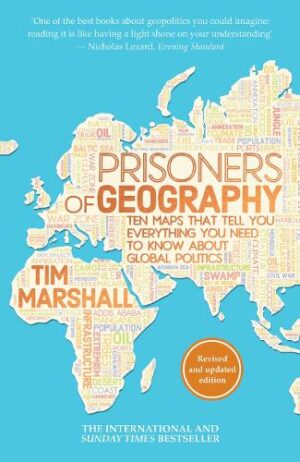After lying around my house for several years, I finally decided to read perennial bestseller Prisoners of Geography by Tim Marshall, and what a serendipitous time to pick it up. The very first page dives into the Russia-Ukraine relationship which the author predicted would end in conflict (the book was first published in 2015 and updated in 2019). Marshall explains how mountains, rivers, ports and climate play major roles in shaping economic prosperity and political power in this accessible and surprisingly enjoyable introduction to the dry sounding topic of geopolitics.
Location, location, location. If you won the lottery, and were looking to buy a country to live in, the first one the estate agent would show you would be the United States of America.
From a geopolitical perspective, America has it all, argues Marshall, and it’s no coincidence the country has emerged as the number one superpower. Plenty of ice-free ports, access to the Pacific and Atlantic oceans, the world largest network of navigable rivers, fertile farmland, a common language and states unified under one government – in short – a geopolitical heaven.
Russia, on the other hand, is fenced in by uninhabitable land areas in the east, frozen ports in the north and countries to the south and west as a barrier to what they most desire: ice-free ports. The annexation of Crimea in 2014 was the first step in satisfying this ambition. The next is unfolding in front of our eyes.
Marshall analyses geographical constraints and opportunities around the world covering every continent as well as specific conflict hotspots such as North and South Korea, China and Tibet, India and Pakistan and the Middle East.
One curious omission stands out in this book, though, and that is the effects of climate change. Marshall hardly mentions which parts of the world will become uninhabitable as a result of droughts and the inevitable migration of people it will cause. He also seems to only focus on sources of fossil fuel reserves as an instrument of power, certainly the case today but, most likely, less so in the future when possessors of mineral reserves essential in the production of batteries or those whose geography facilitates renewable energy production will emerge as winners. Perhaps his follow up The Power of Geography explores that.
Regardless, Prisoners of Geography is a fabulous read, scholarly enough to be credible, yet accessible enough to engage a lay person like me. Highly recommended.
Prisoners of Geography by Tim Marshall is published by Elliot & Thompson, 292 pages.
[newletter]





